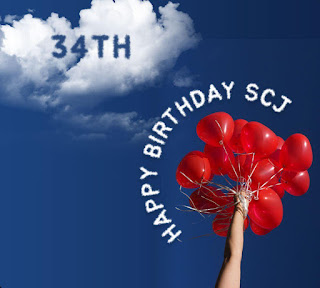Mackenzie Country stems kilometres of beautiful land in the South Island. I’ve had the absolute pleasure of being able to visit it on numerous occasions and every single time it has absolutely taken my breath away.
While I was scrolling through my Twitter feed, I noticed ‘Mackenzie’ was trending and decided to see what was going on. I also had a couple of people protesting about stopping the increase of dairy in New Zealand – two topics that coincided with one another.
What is being proposed is 15,000 cow dairy expansion which will result in great economic profit, but it will be at the expense of tens of thousands of kilograms of nitrate pollution into the vulnerable lakes and waterways in the Mackenzie that greatly make up parts of the ecosystems in Te Waipounamu, the South Island.
 |
| Photo by Greenpeace |
Where has all this come from?
“Dunedin accountant Murray Valentine has been methodical and meticulous in planning for a $100-million-plus dairy conversion in the Mackenzie Basin” explains David Williams, the Newsroom’s South Island correspondent and investigative writer. Williams breaks down the following information in the article:
- Valentine is the owner of Simons Pass Station which has 9,700ha of land (some of it is Crown owned)
- He has secured or sought after 80 consents to follow through with the irrigated dairy farm operation
- 15 years and millions of dollars have been spent preparing the farm
- More in depth information can be read here.
- He has secured or sought after 80 consents to follow through with the irrigated dairy farm operation
- 15 years and millions of dollars have been spent preparing the farm
- More in depth information can be read here.
Essentially Valentine has been planning to create a self-contained farm, ship the animals in for the winter, and have a plot which would grow the feed for the cattle.
The controversy that surrounds this issue, largely posed by Greenpeace, is that around the environment pollution and damage that will scar the landscape of the ātaahua Te Manahuna. The kaupapa that they are supporting is showing governance of the land due to the uniqueness of the region.
The area that is going to be used for the farming is home to a variety of native flora and fauna, included the endangered kakī (black stilt) of which there are approximately 100 remaining.
The irony is that the landscape itself is extremely unsuited to dairy farming and protesters are arguing that one of the main issues is that by having the dairy farm here communicates just how extreme the industry has become here in New Zealand. Furthermore is the issue of how much detrimental damage the whenua will now have to bear with the effects of farming. Previously, I wrote a post on why we need Earth Day and in that post I outline more about the effects agriculture has environmentally.
Getting back to the action today, it’s reported that police spent the afternoon arresting people, having to use bolt cutters to release them from the machinery they had tied themselves to earlier.
 |
| Photo by John Bisset/Stuff |
Is this behaviour from Greenpeace too extreme? Though it makes a point and I admire their efforts, I wonder what can be done to improve the overall impact that agriculture is having on Aotearoa, New Zealand.
Something I would challenge, especially with a Labour government is creating policies around reducing the waste, at the very least, that is created as a byproduct of dairy farming. It is evident that there is a lot of damage occurring due to the farming, but with the dairy industry contributing $8 million to our GDP in 2017, it wouldn’t be wise to pull the plug out from underneath us.
Therein, the question remains what the best way forward is. I wonder if there can be conferences made with both environmentalist, farmers, and business owners on how we can collectively embrace more kaitiakitanga towards this issue and work together going forward.
Sources:
- https://www.stuff.co.nz/business/farming/dairy/105157124/police-arrest-12-greenpeace-protesters-in-mackenzie-district
- https://www.greenpeace.org/new-zealand/greenpeace-activists-halt-dairy-conversion-in-the-mackenzie-country/
- https://www.newsroom.co.nz/2018/01/21/75698/mackenzie-divisions-as-wide-as-ever#
- https://www.nbr.co.nz/article/dairy-sector-contributes-8-billion-gdp-jw-199810




























